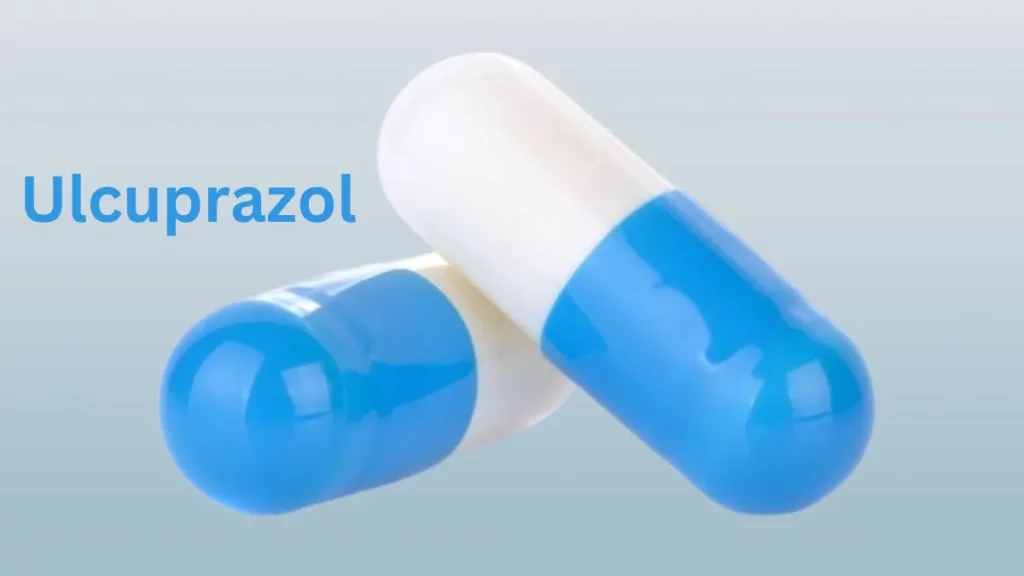Ulcuprazol: A New Hope for GERD Relief
Gastroesophageal reflux disease (GERD) affects millions of people globally, creating discomfort that often seems never-ending. This chronic condition, caused by the backflow of stomach acid into the esophagus, frequently leads to painful symptoms like heartburn and, if left untreated, more severe health issues. However, a new player in the pharmaceutical market, Ulcuprazol, promises to change the game for those suffering from GERD. This article explores how Ulcuprazol could offer a new lease on life for GERD patients with its unique mechanism and effectiveness.
Understanding GERD
GERD is more than just an occasional bout of heartburn. It’s a chronic condition where stomach acid frequently leaks into the esophagus, causing irritation and inflammation. This backflow, or reflux, can lead to symptoms like burning in the chest, regurgitation, and difficulty swallowing. Over time, untreated GERD can result in more severe complications, including esophageal ulcers and an increased risk of esophageal cancer.
The Current Landscape
Historically, GERD has been managed with a range of treatments, from lifestyle changes and over-the-counter antacids to stronger medications like proton pump inhibitors (PPIs). While these treatments can provide relief, they are not always effective for everyone and may come with side effects or long-term complications. As a result, there is a constant need for more effective and targeted treatments.
Introducing Ulcuprazol
Ulcuprazol is a new medication recently introduced to address the unmet needs of GERD patients. This novel prescription drug is making waves due to its promising ability to alleviate GERD symptoms and promote healing of the esophagus. But what sets Ulcuprazol apart from existing treatments?
Mechanism
Ulcuprazol’s mechanism of action is one of its most significant attributes. Unlike traditional PPIs that focus on reducing stomach acid production, Ulcuprazol works by targeting and repairing the damaged tissues in the esophagus. This unique approach not only reduces the symptoms of GERD but also addresses the underlying damage caused by acid reflux. By promoting mucosal healing, Ulcuprazol helps restore the esophageal lining, offering a more comprehensive solution to GERD management.
Efficacy
Clinical trials have demonstrated Ulcuprazol’s effectiveness in treating GERD. Patients taking Ulcuprazol have reported significant improvements in symptoms, including reduced heartburn and regurgitation. Additionally, the drug has shown a remarkable ability to heal esophageal tissues more rapidly than some traditional treatments. This dual benefit of symptom relief and tissue repair makes Ulcuprazol a promising option for those struggling with persistent GERD.
Safety
As with any new medication, safety is a crucial consideration. Early studies on Ulcuprazol have shown it to be generally well-tolerated by patients. Common side effects are mild and typically include gastrointestinal symptoms like nausea or diarrhea. Long-term safety data is still being collected, but initial findings suggest that Ulcuprazol does not pose significant risks when used as directed. It is always essential for patients to discuss potential side effects with their healthcare provider and weigh the benefits against any risks.
Comparing Treatments
When comparing Ulcuprazol to existing GERD treatments, its novel approach to healing esophageal tissues stands out. Traditional treatments often focus primarily on managing symptoms by reducing stomach acid, which can be effective but does not address the damage already done to the esophagus. Ulcuprazol’s ability to promote healing while providing symptom relief offers a more holistic approach to GERD management. This could mean fewer long-term complications and a better quality of life for patients.
Patient Perspectives
Patients who have used Ulcuprazol report a significant improvement in their quality of life. Many have noted that their GERD symptoms have decreased considerably, allowing them to return to normal activities without the constant discomfort of heartburn. The added benefit of esophageal healing has been particularly welcomed by those who have experienced complications from long-term GERD.
Future Outlook
The introduction of Ulcuprazol represents a significant advancement in the treatment of GERD. As more data becomes available, including long-term safety and efficacy results, Ulcuprazol could become a standard option for managing GERD. For now, its innovative approach provides a new hope for patients who have struggled with conventional treatments.
In conclusion, Ulcuprazol offers a promising new option for GERD patients, combining effective symptom relief with the potential for esophageal healing. Its unique mechanism of action and early positive results make it an exciting addition to the GERD treatment arsenal. As research continues and more patients experience its benefits, Ulcuprazol could indeed revolutionize the way we manage this challenging condition.







